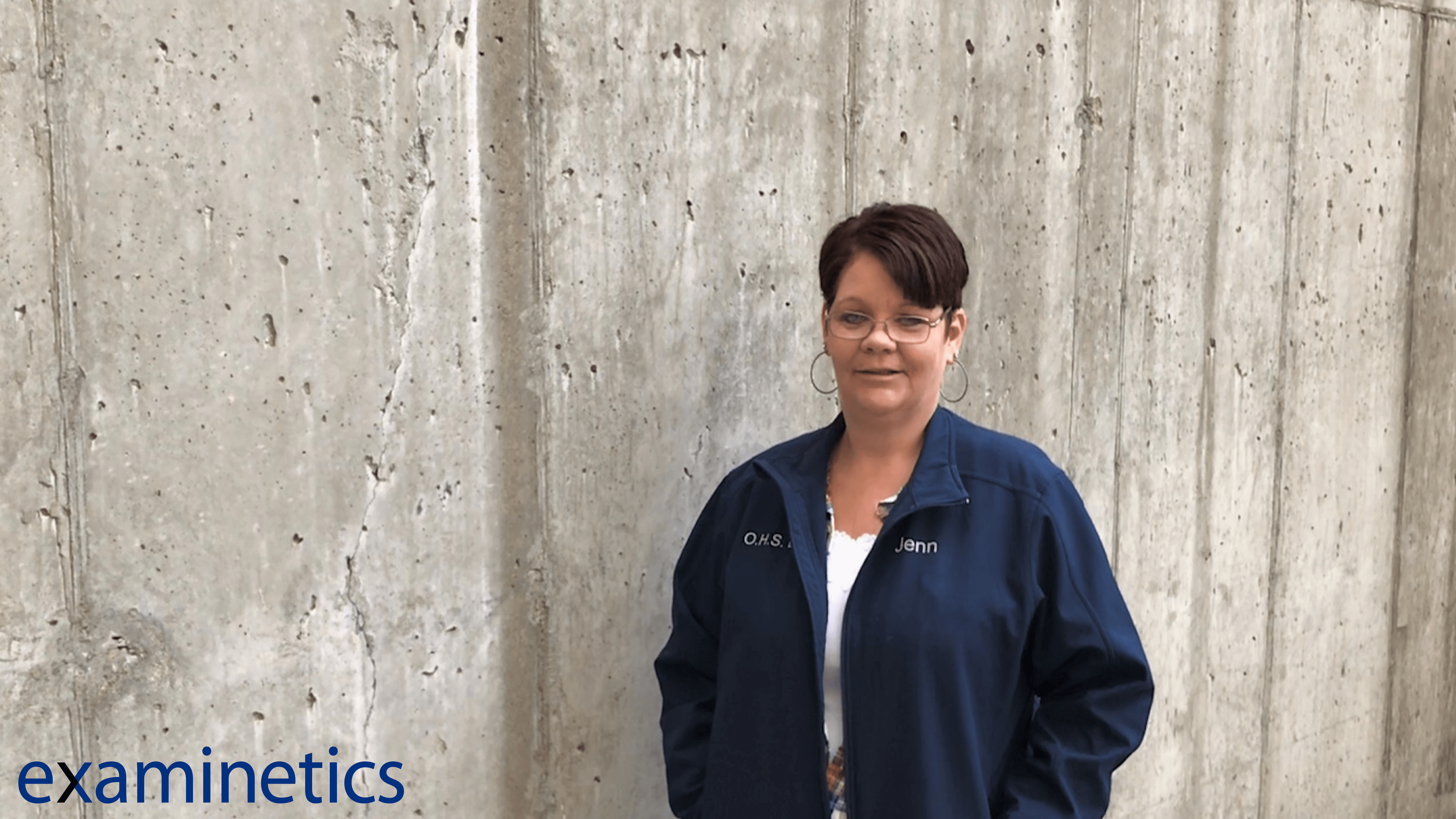1. Tell us a little bit about your role and how your role contributes to the overall mission of Examinetics.
I am an Occupational Health Specialist. Simply put, I travel to work sites around the country to conduct annual hearing tests and respirator fit testing services. I'm also a Certified Field Trainer for our new OHS technicians.
I become passionate about this type of work after my experience working on the line of various manufacturing companies. At my old job, the safety department would instruct us on how to insert earplugs, but never how to take them out properly. I can recall many times I felt a pop when I pulled them out. Not only was it very uncomfortable, but it was also very bad for my ears. This experience made me want to improve safety measures on job sites across the country.
After I discovered Examinetics, I knew, with my experience on the line, that I could be a catalyst for teaching others safety protocols in the workplace.
2. How does your role contribute to the health and safety of America's workforce?
I believe the role of an OHS technician is vital to the health and safety of our workforce. Although we only appear at our clients' sites once a year, the importance of preserving that safety through the rest of the year is just as important as the initial testing days.
As a happy extrovert, it's my goal to make sure people feel comfortable and safe during testing. I like to crack jokes by asking people (while looking in their ears) if they're missing any marbles. My positive attitude is just a small way where I feel I can contribute.
3. What's the most rewarding part of your job?
As an OHS, I love to educate others on the importance of safety protocols, with many young participants, I worry about their future hearing. I demonstrate how to properly put in and take out hearing protection as a way to educate and protect our clients' workforces. After the demonstration, the look of comprehension on the participants' faces is very rewarding.
Another awesome perk of the job is the ability to travel. I feel rewarded being to travel to places I've only dreamed about. For instance, one of my favorite places to visit was the Cambridge/Boston area in Massachusetts.
Also, I get to see the beauty of the state that I've never thought about much. An example of this is a small, yet picturesque town nestled in the hills of Arkansas called Eureka Springs. It's an artsy and lively Harley-Davidson town.
4. What advice would you give for future OHS techs?
I would encourage all trainees to remember the advice of their trainers. They are knowledgeable and eager to help. Don't hesitate to call them. I've been with Examinetics since 2017, and my trainer, Regina Gilley, is still the first one I call when I have a question.
Also, it's important for future techs to understand the pros and cons of constant traveling. It can get bumpy when dealing with equipment, unpredictable weather or issues with mobile units. Of course, it's important to be prepared, but it's just as important to be flexible with a solution-based mindset.
5. Considering your role and different experiences in your work, please share a personal safety and/or health tip that may be relevant for clients.
I would urge companies to add a demonstration for employees on how to properly remove earplugs and to check their ears before testing days.
It may sound ridiculous, but I've discovered many foam and pre-molded earplugs left in the ear canal, unbeknownst to that person. It's been countless times I've seen a hot pink or bright blue "eardrum."
Before testing, employees should check their ears to make sure they are clear of any earplugs. A demonstration to properly take out earplugs is the perfect reminder for employees to clear their ears once their shift ends.
Safety managers can contribute to make safety a priority by randomly using the tug and pull method or just simply educating the employees on how to take the earplugs out.
---
This is business-to-business information intended for EHS (environmental health and safety) professionals and not intended for the final consumer. Companies should check the local regulatory status of any claim according to their individual needs, requirements and intended use.
